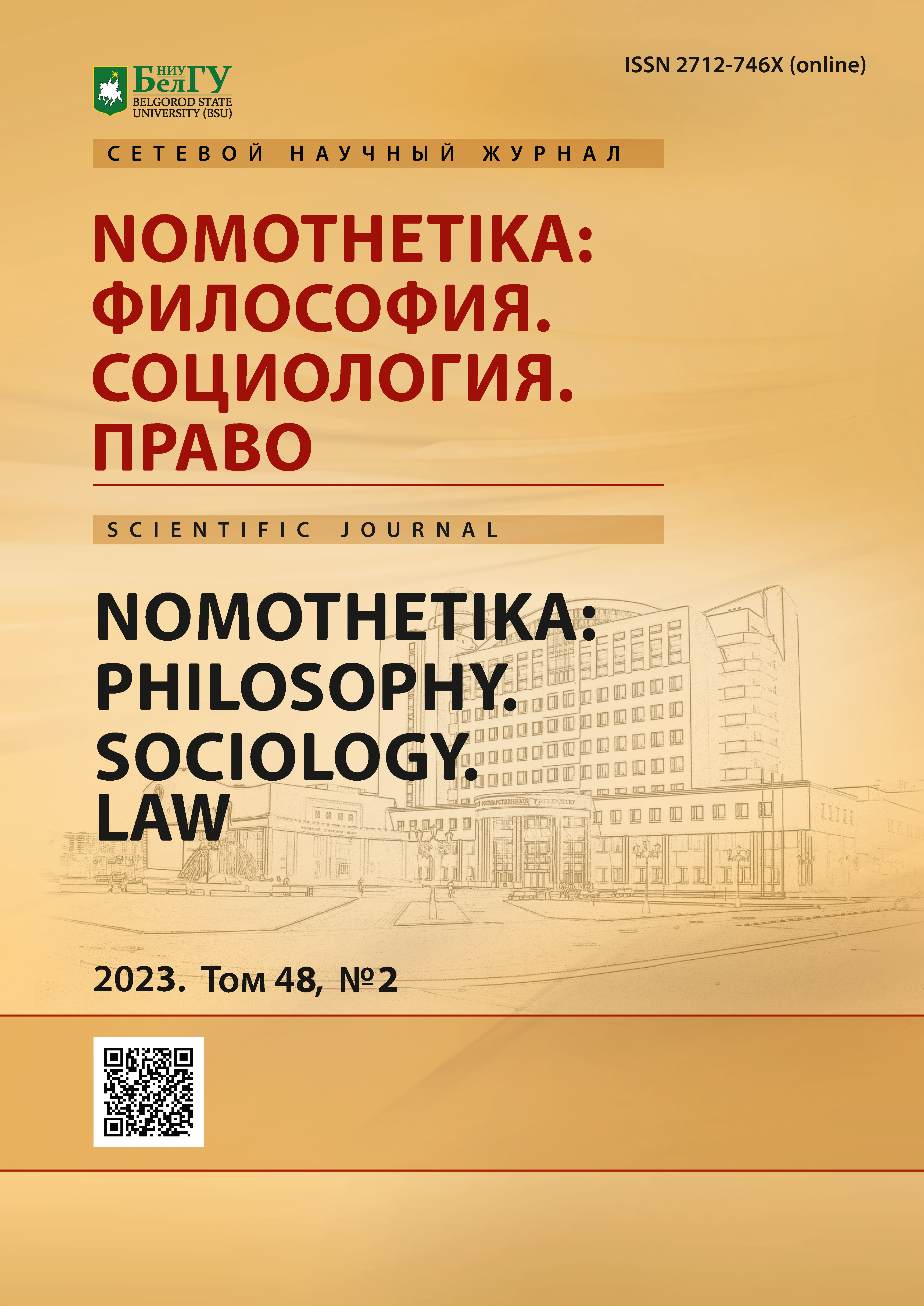Sources of Law as a form of Consolidation of Social Claims
DOI:
https://doi.org/10.52575/2712-746X-2023-48-2-308-316Keywords:
sources of law, social claims, traditional forms of consolidation, non-traditional forms of consolidationAbstract
The variety of permanent relations, their high dynamics and variability are often put forward with the application of the rule of law, filling in gaps, capturing legal conflicts. In this regard, the rule-making mechanism is of great importance, in particular, the disclosure of the relationship between the sources of rights using the claims of the subjects used. At the same time, there is no detection of the problem of narrow study in the scientific literature. The purpose of the work is to analyze the mechanisms of registration of documents with the occurrence in the process of evolution of cases of the emergence of relations of attraction. The article says that increased resistance to the requirements of subjects (individuals, social groups) to states to secure possible interests in the norms of rights, their institutionalization, while striving to achieve support in their sources of rights. The author of the article proves that the sources of law and social claims have interconnected and interdependent phenomena. Sources of law under the constitution are forms of securing safe claimants. The social claims of subjects first of all find their objectification both in excluding sources of rights, such as a normative legal act, and in non-traditional sources for the Russian state. The author comes to the conclusion that the problem of the correct legal substantiation of social attractions and their subsequent competent institution in the source of rights is a characteristic vector of the science of symptoms and law-forming activity.
Downloads
References
Алексеев С.С. 1973. Проблемы теории права. Свердловск, 396 с.
Алексеев С.С. 1999. Право: азбука-теория-философия. Опыт комплексного исследования. М., 76 с.
Бошно С.В. 2004. Развитие признаков нормативного правового акта в современной правотворческой практике. Журнал российского права, 4: 97.
Васьковский Е.В. 1901. Учение о толковании и применении гражданских законов. Одесса, 400 с.
Зорькин В.Д. 2004. Прецедентный характер решений Конституционного Суда Российской Федерации. Журнал российского права, 12: 3–9.
Коркунов Н.М. 1894.Указ и закон. СПб., 408 с.
Лазарев Л.В. 2003. Правовые позиции Конституционного Суда России. М., 24 с.
Матузов Н.И. 1972. Личность. Права. Демократия. Теоретические проблемы субъективного права. Саратов, 298 с.
Морозова Л.А. 2003. Еще раз о судебной практике как источнике права. Государство и право, 1: 19–23.
Самощенко И.С. 1969. Некоторые вопросы учения о нормативных актах социалистического государства. Правоведение, 3: 26–33.
Смирнова М.Г. 2008. Социальные притязания и субъективное право. СПб.,. 136 с.
Windcheid. 1856. Die Actioromischen Civilrecht svom Standpunkte des heutigen Recht. Dusseldorf.3.
Abstract views: 241
Share
Published
How to Cite
Issue
Section
Copyright (c) 2023 NOMOTHETIKA: Philosophy. Sociology. Law

This work is licensed under a Creative Commons Attribution 4.0 International License.


